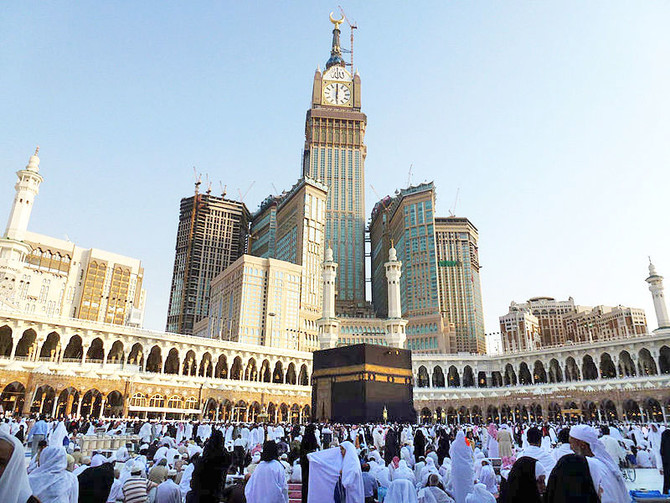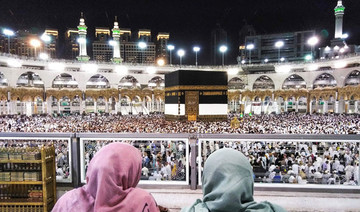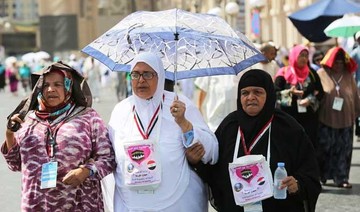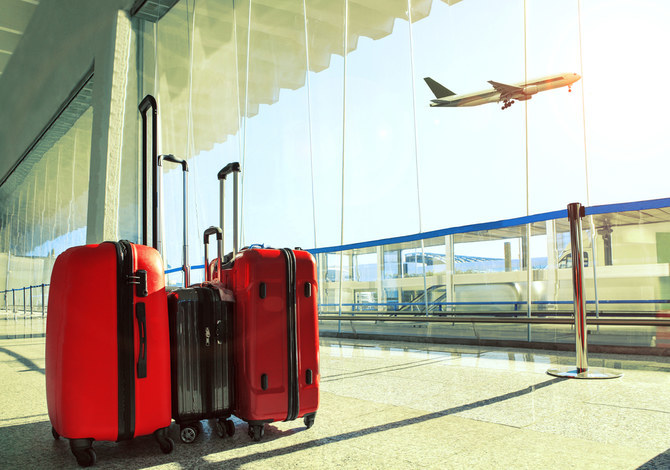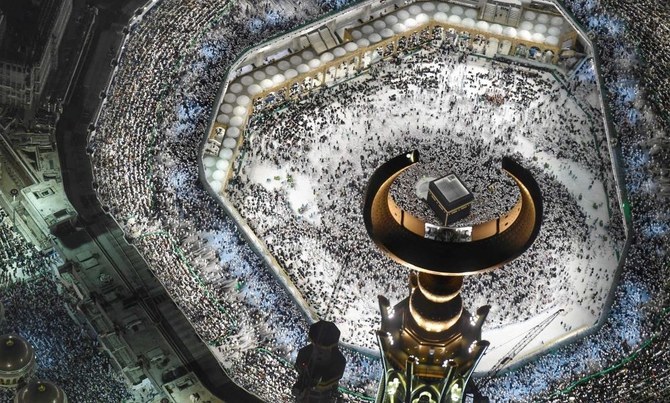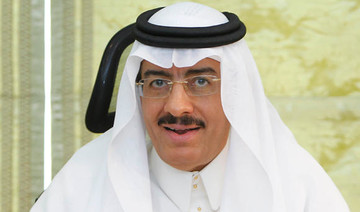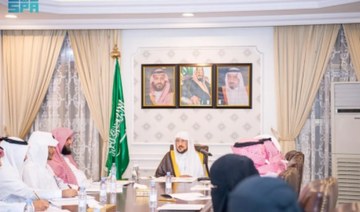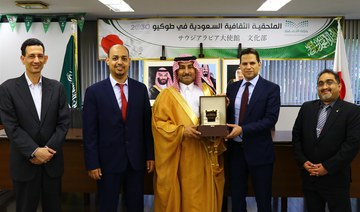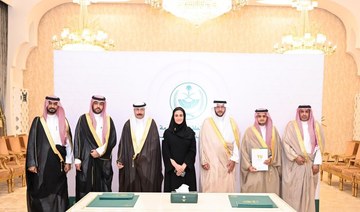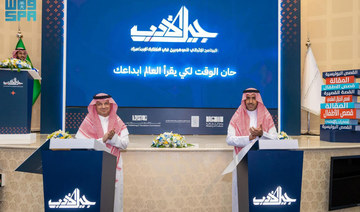JEDDAH: The annual Muslim pilgrimage of Hajj is an Islamic practice more than 1,400 years old that holds an incomparable spiritual value for Muslims when performed during their lifetime.
It is one of the five pillars of Islam, and a journey that every Muslim must embark on at least once in their lifetime (so long as they are financially and physically able). It is a physically taxing five-day voyage that begins in Makkah, and has pilgrims trekking more than 50 kilometers by foot. Comparing a pilgrim’s Hajj journey in the past with today, the hardships have been greatly reduced as the advancements of the Saudi government in technology, logistics, hospitality, and security have considerably eased the burdens on pilgrims and their families.
Rocky road for pilgrims
Before the Saudi state was founded and the current monarchy formed, the Arabian Peninsula consisted of many small tribes and sheikhdom-governed territories. This frequently led to constant states of chaos and instability within the region, and often the most prone to this violence were often defenseless Hajj pilgrims making their way through unfamiliar territories. At the turn of the 19th century, the security conditions en route to Makkah were unforgiving. When pilgrim began their Hajj journey, most had full knowledge that they were indeed risking their very lives while leaving worried families behind, putting their faith to the ultimate test.
Nomadic Bedouin tribes would often attack convoys, pillaging vital food and supplies. Those who resisted would often pay the ultimate price. Others would be left with insufficient supplies to stay properly hydrated. The unforgiving weather conditions would naturally claim additional casualties.
The beginning of the 20th century saw additional advancements in transit methods with the Hejaz Railway opening in 1908, running from Damascus to Madinah.
The railway was built on the order of the Ottoman Empire, financed by Deutsche Bank, and strongly supported by the then-German Empire. Seemingly from one Hajj season to the next, a pilgrim’s journey to Makkah was now drastically reduced from weeks by steamboat to only four days by train.
King ushers in era of security
By the late 1920s King Abdul Aziz, Saudi Arabia’s founder-to-be, was consolidating his power having overrun most of the central Arabian Peninsula. After capturing the holy city of Makkah in 1925 from Sharif Hussein, he ended more than 700 years of Hashemite rule. Prominent figures from Makkah, Madinah, and Jeddah now acknowledged King Abdul Aziz as the King of Hejaz. Najd was soon elevated to a monarchy as well in 1927, and for the next five years King Abdul Aziz ran a dual Kingdom of Hejaz and Najd, operating them as separate territories but both firmly under his control. In 1929, King Abdul Aziz would formally unite Hejaz and Najd into what we now recognize as the Kingdom of Saudi Arabia, in 1932.
Not long after that, oil was discovered in Saudi Arabia in 1938 by American geologists working for the Standard Oil Company partnered with Saudi officials. King Abdul Aziz’s tremendous influence over the region had increased exponentially. Rather than use this tremendous power to conquer additional territories, King Abdul Aziz used this heavy influence to promote peace and stability across his newfound Kingdom, forcing Bedouins to abandon intertribal conflicts that frequently involved Hajj pilgrims. For King Abdul Aziz, establishing the safety and security of Hajj pilgrims was of paramount importance.
Modern transportation in the form of aircraft effectively began after World War II, with the Kingdom establishing the Arabian Transport Company in 1946 and the Bakhashab Transport Company in 1948. Although the first official air transit contract for Hajj pilgrims was established between the Saudi government and Misr Airlines of Egypt in 1937, the airline frequently experienced engine trouble that disrupted the transport flow of pilgrims. This, coinciding with the impending WWII from 1939 to 1945, had Hajj pilgrim numbers decrease greatly. Once the war ended, though, traveling by plane proved highly effective for the pilgrims. By 1950, the use of camels as a means of transport during Hajj virtually ended.
Comfort, guidance for all
Today’s Hajj pilgrimage, in many ways, bears little resemblance to its early 20th-century counterpart. Aircraft have, for the most part, replaced sea and rail travel, and in doing so, have transformed Hajj from a months-long multi-site journey into a much more rapid, safe, and fairly direct voyage to Makkah.
Today, the Makkah Metro is expected to shuttle more than 350,000 pilgrims from Mina to Arafat and back to Mina. That is more than two million pilgrims every day. There are electronic maps equipped with multiple languages to accommodate the diversity of pilgrims, and water supply has improved considerably, as well as waste management, with more than 36,000 restrooms readily available. Thousands of government security officials, emergency services, and volunteers constantly guide pilgrims at every stage of their journey.
New medical equipment is regularly updated to adapt to the wide range of illnesses and changing environmental factors. Free medical care is provided with more than 100 ICU ambulances, each equipped with a physician, a nurse, and the latest technology on board.
While many aspects of Hajj have evolved with the times, some traditions have stood the test of time. Pilgrims used to pray on open fields on their Hajj journey, and likewise today, people do not hesitate to pray on the open path. The means of transport may have changed but the commitment to the punctuality of prayer has always endured. While larger in numbers, and many tents are now equipped with air-conditioning, Saudi Arabia has maintained this aspect of Islamic heritage. During Hajj, the “Kiswa,” made of pure silk with gold and silver threads that drape over the Kaaba, is annually replaced and folded up about 10 feet to protect it from harsh weather conditions, as well as overcrowding during the peak days of Hajj. To this day, this practice is maintained to prevent the cover of Kaaba from suffering any damage.
Throughout the 20th century, and still to this day, Makkah is constantly going through changes. The biggest is the expansion of the Holy Mosque itself, but many advancements have been made in the form of logistics, hospitality, security, and medical care. Some traditions and methods, however, have remained the same. A balance of tradition and progression that has the Saudi government recognizing Islamic customs while taking into consideration pilgrims’ primary needs of safety and security.






